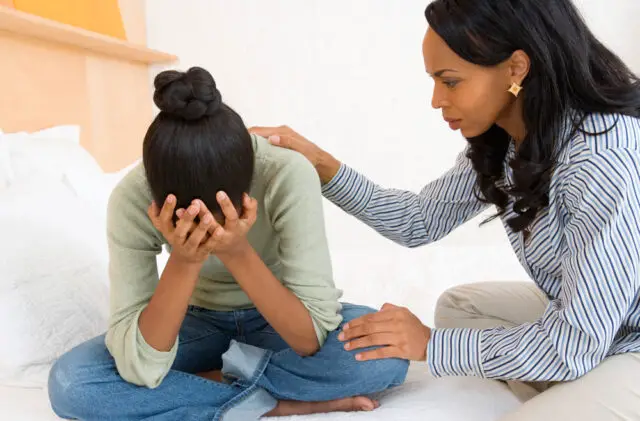Specialists advise strengthening the resilience capacity of adolescents and establishing effective communication from childhood. Half of mental illnesses begin before the age of 14, but most cases are not detected or treated, warns the World Health Organization (WHO), who dedicated the international day in this area to the challenges that young people face in today’s society marked by rapid transformations.
The entity highlights the high incidence in this segment of the population of pathologies such as depression, which ranks third in terms of impact on adolescents or the importance of suicide as the second cause of death between 15 and 29 years of age.
The WHO also warns against the prevalence of problems such as eating disorders and risk behaviors, especially the excessive intake of alcoholic beverages and illicit drugs, among young people in a significant number of countries, including Costa Rica. “Estimates suggest that approximately 70% of adolescents have consumed alcohol and 15% do so regularly from ages as early as 13 years.
Likewise, it emphasizes that the abuse of substances such as alcohol and drugs have “direct or indirect participation in the main cause of mortality in this group: violent deaths.”
Prevention and therapy tools
The WHO emphasizes the importance of strengthening resilience capacity “from the earliest ages, in order to face the challenges posed by today’s world.” Along these lines, the organization emphasizes the need to increase prevention among adolescents, knowing and better understanding the first symptoms that warn about the development of a disorder.
Having a protective family environment

A determining factor for good mental health is having a protective family environment, a framework in which it is necessary for parents to make every effort to increase the quantity and quality of time they spend with their children. “When the adolescent feels listened to, he knows who to ask for help or advice,” emphasizes Dr. Ponce. Establishing these ties within the family, he adds, helps to form in young people a state “in which they are aware of their abilities, face the normal stresses of life in a normal way, and study or work productively.”
Youth mental health
Among the key factors for the state of mental health among adolescents, Dr. Alfonso Correa, head of child psychiatry at Clínica Alemana, highlights the emphasis on individualism and success in our society, along with the high levels of loneliness that a child suffers from. significant percentage of children and adolescents.
“One explanation for the high frequency of depression and anxiety disorders has to do with the greater demand to which our young people are subjected, which pressure that they be efficient and competitive. Nowadays, many face their life believing that they are only capable and competent if they have the best mark or score more goals”, indicates the specialist.
Youth vulnerability
The dissatisfaction or the feeling of vulnerability of young people increase to the extent that they do not have adequate containment. “Many adolescents feel alone during their emotional processes and less accompanied by their parents,” says Dr. Correa, in relation to the conditions of modern life that make communication difficult and increase the feeling of loneliness. In this scenario, the specialist considers it necessary to promote greater support by improving different aspects of family dynamics.
Challenges for parents
Controlling success, phrases like “it doesn’t matter what you study if you’re the best”, implies that any other result is read as a failure, warns Dr. Correa. Therefore, it emphasizes the need for parents to reinforce “satisfaction with effort, enjoy learning and develop activities that make sense”, assertive expression of emotions, one of the most important challenges for parents is to be a “good model of emotional expression, with coherence between what is felt and expressed”. To do this, he recommends teaching children to “put words to what they feel” and being available to “accept their emotions, such as anger, fear or grief, giving them a good constructive course.”
Early bond development
Adolescence is a complex time that requires developing a good relationship from childhood, cultivating close and persistent communication. Faced with the loneliness that affects many children and young people in all social sectors, he advises taking advantage of family time without distractions, trying to “take care of those spaces, look into each other’s eyes, play and eat together”.

